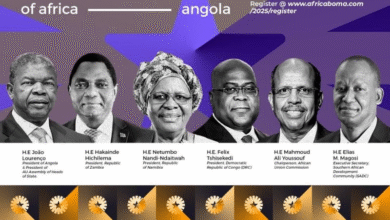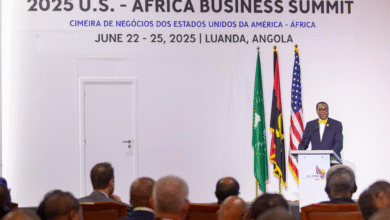Africa is experiencing strong growth which is pulling up the buoyant sectors, such as air transport. However, one challenge remains: free movement in the African airspace for African national airlines. In this context, the African countries already planned, under the aegis of the AU in March, to establish a single aviation market in 2017 pending the 6th meeting of the civil aviation stakeholders expected in Tunis in May 7-9.
Air transport in Africa has increased by 6.6%, making it the fastest growing region after the Middle East. Yet Africa accounts for only 3% of global traffic with 100 million passengers per year. To boost the sector, African countries are looking forward to liberalize the airspace of the continent for national airlines. This approach reflects the African Union’s desire, at Lomé meeting held in March, to facilitate air traffic between African countries.
Liberalizing the African airspace
« Africa is suffering from a communication problem. It’s very difficult to move from one country to another in the continent, which hinders cooperation in all growth sectors. We are currently living at a high speed with air transport means such as the plane. Unfortunately, Africa is suffering from a communication deficit, » acknowledged Gilbert Mokoki, Minister of Transport, Civil Aviation and Merchant Navy of Congo Brazzaville at the Lomé meeting held last March and devoted to air transport in Africa.
He welcomed the actions so far undertaken to put an end to the protectionist measures which infringe upon African airlines dominated by the Western ones in the continent. » Many isolated initiatives from countries have been hit by protectionist barriers. Henceforth, we will have to overcome these barriers to finally liberalize the African airspace for our airlines to enhance cooperation between our States by establishing a single air market so that African airlines can fly in a common area, » he added.
200 million potential passengers per year
The initiative is not new. Indeed, the Yamoussoukro Declaration on a new African aviation policy in October 1988, as well as the Decision on the liberalization of access to air transport markets in Africa in November 1999, have already set the tone for a single and free airspace. But these projects must be implemented. Today, the idea raises a lot of hope among the stakeholders though much remains to be done.
In 2016, only 19 of the 54 African countries joined the project to establish a single aviation market. Yet this space represents a large market of about 635 million people with 200 million potential passengers per year. « The advantage of the single air market is that there will be a free movement of people and goods. In addition, national airlines will fly freely in the community space. And all this will catalyze trade and bring peoples together. So this will help promote the development of African countries, » said Ninsao Gnofam, the Togolese Minister of Transport. « It will also boost regional trade. So the regional integration process will be strengthened, » he added.
Challenges: Financing and regulation
« We will have to pool our strengths in the technical, commercial and administrative areas, in a harmonized legislative and regulatory environment to meet the challenge of developing the air transport sector in Africa. To launch this development, we will also have to invest. That’s why Togo has made a lot of efforts to invest in the construction and modernization of air transport infrastructure in order to become a regional hub », said Latta Gnama, Managing Director of the National Civil Aviation Agency of Togo (ANAC-Togo).
This initiative will avoid inconvenience to airlines which are obliged to divert their flights to other destinations when a State prevents them from using its airspace. The project will be on the agenda during the sixth meeting of civil aviation stakeholders to be held on May 7-9 in Tunis. « The full liberalization of the air transport environment will: facilitate air consolidation through the creation of viable operational units for better connectivity; promote a border opening policy with the introduction of e-visa, e-border and biometric passports used for greater security, and easy travel procedures; and promote online tourism industry, » said Elijah Chingosho, Secretary General of the African Airlines Association (AFRAA).
Author: Blamé Ekoue//Photos: Lomé Airport, Asky airline © DR







